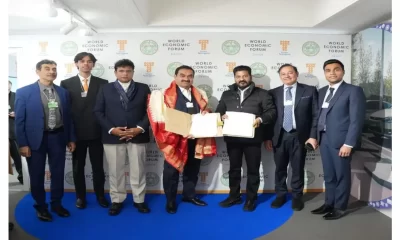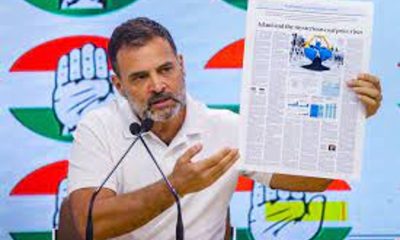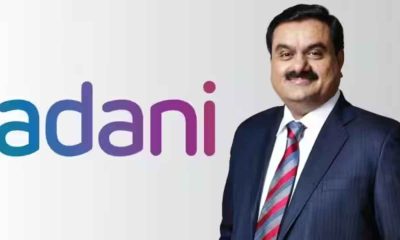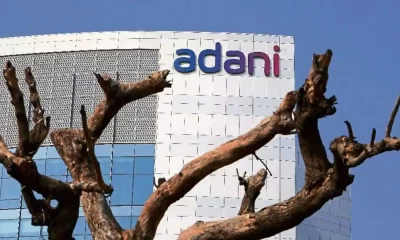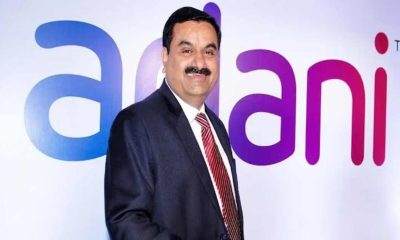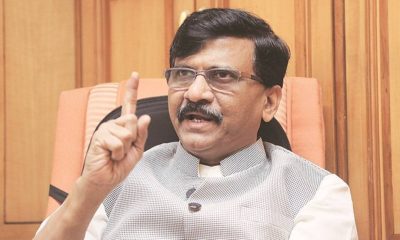India News
Paranjoy Refutes Allegations of ex-colleagues
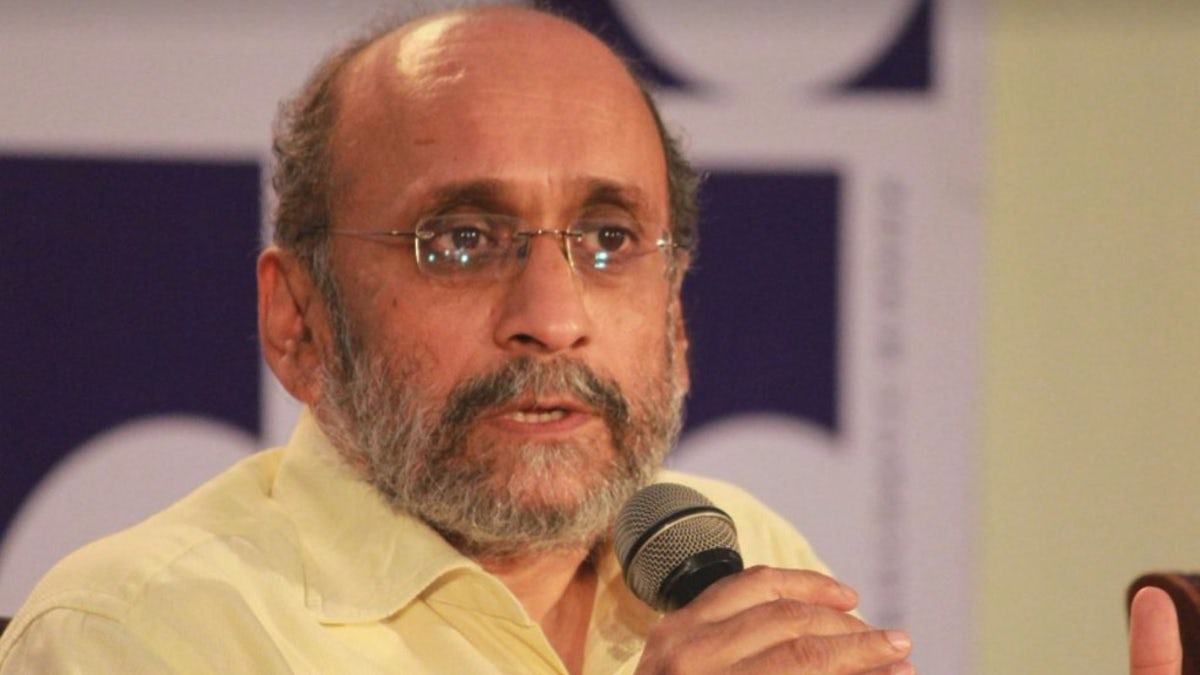
[vc_row][vc_column][vc_column_text]Forced to resign as editor of Economic and Political Weekly (EPW) and targeted on social media for his article against Adani Group, Paranjoy Guha Thakurta – also accused by some members of the staff of the journal of various misdemeanours – has broken his silence to refute their charges.
Over a week after EPW staff members raised questions about Paranjoy Guha Thakurta’s behaviour during his tenure as editor of the journal in a ‘confidential’ letter to the Sameeksha Trust board, Guha Thakurta has decided to break his silence, which he says was “interpreted by some as my tacit acknowledgment of the claims made by some of my former colleagues.”
The EPW staff members had questioned the decision to pull down the the article “Modi Government’s ₹500 Crore Bonanza to Adani Group Company ” (EPW , 19 June 2017) from the website as per Guha Thakurta’s instructions, undermining the review process of articles “for his associates, persons of influence, and has entertained partisan endorsements to research papers without following the review process and evaluating the merit of the article”, higher payments to certain authors (usually his old associates), which would have been 20 times higher than the token amounts paid to contributors, and “a grave assault on the work culture in the EPW office, with many of us on staff being made to feel uncomfortable by inappropriate, sexual and sexist comments made by Mr Guha Thakurta”.
In a statement issued on August 2, Guha Thakurta has rebutted the allegations point-wise. Here is the text of his statement:[/vc_column_text][vc_row_inner css=”.vc_custom_1501765788145{padding-top: 20px !important;background-color: #a2b1bf !important;}”][vc_column_inner][vc_column_text]Statement issued by Paranjoy Guha Thakurta
Dated: 02 August 2017
- I have agonised for days about whether I should put out this statement, ever since the letter dated 25 July 2017 sent by eight of my former colleagues in the Economic and Political Weekly (EPW) to the trustees of the Sameeksha Trust, owners and publishers of the EPW, entered the public domain soon after it was sent. This was a letter that was not meant to have reached me. But now that it is circulating widely, I have decided it is time to respond. My silence on the points raised in the letter have been interpreted by some as my tacit acknowledgment of the claims made by some of my former colleagues.
This is far from correct.
- On the issue of my allegedly undermining the review process in the EPW, I wish to assert that I exercised my prerogative as an editor to shorten the review process in the cases of barely a handful of articles out of the hundreds of articles that were published in the print and web editions of the EPW in the 15 months that I was privileged to serve in this position. I wish to place on record that among this handful of articles was one that was strongly recommended for publication by one of the Trustees of the Sameeksha Trust. After this article was published, it attracted a strong rejoinder which too was published. The same Trustee also wrote an email to me expressing unhappiness at the rejection of a particular article. While it is not normal practice in the EPW to specify the reasons for rejecting an article, in this instance, because a specific complaint had come from a Trustee, I requested the reviewer to specify the reasons for rejecting the article. These reasons were then emailed to the Trustee who retorted with a harangue questioning the decision of the reviewer.
I wish to, therefore, categorically deny the claim that I have undermined the review process in the EPW.
- On the claim that I favoured my close associates by promising to pay them substantially more than what the EPW normally pays its contributors, the following facts should be noted. One particular investigative article by Subir Ghosh (my co-author and close associate) on the cartels that were apparently responsible for the spike in the prices of tur and urad dal was published on the website of the EPW. This article was written after more than a month of research based on a perusal of thousands of pages of documents that were leaked to me by a whistleblower. Another article on Kingfisher Airlines by Nihar Gokhale (a freelance journalist who could become my close associate) was published on the EPW website based on leaked internal documents of a bank. I proposed a payment of Rs 30,000 and Rs 20,000 respectively for the two authors of the two articles which I felt would be commensurate with the efforts they had put in. These were not the typical articles contributed to the EPW for which the authors are paid token amounts. The articles were specially assigned.
An important point to note in this context is that the EPW recently received a generous grant from a foundation for its digital edition and one component of this grant was specifically meant for “corporate investigations” and “web exclusives” for which a separate budget has been earmarked. Nevertheless, I had in addition raised a sum of Rs 50,000 from an individual as a donation for corporate investigations. This person subsequently withdrew his donation on learning about my resignation. At this point of time, neither Ghosh nor Gokhale have been paid the amounts I had “promised” them.
- On the question of the editor writing signed articles, from the day I joined the EPW as editor on 04 April 2016 till the day I resigned 15 months and 15 days later, eight articles written and/or co-authored by me have been published in the digital and/or print editions of the EPW. I have never been ashamed of the fact that for the forty years I have been a journalist, I have been a reporter for much of the time. Over and above the articles I authored or co-authored, I had during my tenure as editor been responsible for publishing close to two dozen articles that may be described as “investigative” in nature. I wish to state that not only did these articles attract more than the usual number of readers to the website of the EPW, but also that not a single fact published had to be retracted or were contradicted. My former colleagues refer to an article on alleged over-invoicing of imported coal by prominent private and public companies that I published on the very first day I joined the EPW. That was also the day I received a copy of a document (on which the article was based) that had been sent to 50 different government establishments. I wanted the EPW to be the first to publish the news and indeed, after the EPW published the report, it was picked up by a number of Indian and international dailies and publications.
- It has also been alleged by my former colleagues that I had compromised the “egalitarian” work culture in the EPW. They are indeed entitled to their opinion. I do not agree with them. I believe I did try and accommodate the viewpoints of my former colleagues even when I vehemently disagreed with them. It is up to the larger community of the EPW to evaluate the contribution I made to this reputed publication.
- What has pained me the most is the claim that I have on occasions used inappropriate and sexist/sexual language in office. On only one (repeat one) occasion, did I inadvertently use a phrase in a conversation with a woman colleague that may have been considered inappropriate. On realising this, I immediately apologised to her. Later in the day I followed it up with an email to her placing on record my apology for what I had said. I cannot prove what I have stated as my email account with the EPW has been suddenly blocked. It is important to note that if my way of functioning with my women colleagues in office had on occasions caused them discomfort as is being alleged in the letter to the Trustees, I am not aware if any formal complaint was ever made. That this is being made an issue now seems like it is part of a bigger agenda to malign me personally.
- I am taking particular umbrage at the decision to suddenly block what used to be my official email account. This is contrary to the explicit assurance that had been given to me that I would be allowed access to my EPW email account for a few weeks after my resignation from the post of editor of the EPW on 18 July. I sincerely hope that what is contained in my EPW email account will not be tampered with. I also hope I will still be given an opportunity to access my email account to retrieve what is rightfully my own work.
- I am particularly thankful to my former colleagues for expressing their disagreement with the manner in which the trustees of the Sameeksha Trust directed/instructed/ordered me on 18 July to pull down an article on Adani Power Limited ostensibly because a lawyer representing the company had sent the EPW a letter/notice alleging defamation without having moved a court of law. My former colleagues have rightly perceived this action as an encroachment on editorial autonomy.
- In conclusion, I wish to reiterate that the institution that is the EPW is far bigger than any individual and will always be that way. Its survival and further development, I believe, is the responsibility of the larger EPW community that has sustained and nurtured it.
Yours faithfully
Paranjoy Guha Thakurta
Gurgaon (Haryana)[/vc_column_text][/vc_column_inner][/vc_row_inner][/vc_column][/vc_row]
2024 Lok Sabha Elections
Lok Sabha election 2024: Nearly 50% voter turnout recorded in second phase till 3 pm
The constituencies going to polls today include all 20 Lok Sabha seats in Kerala, 14 in Karnataka, 13 in Rajasthan, and others spread across different states.
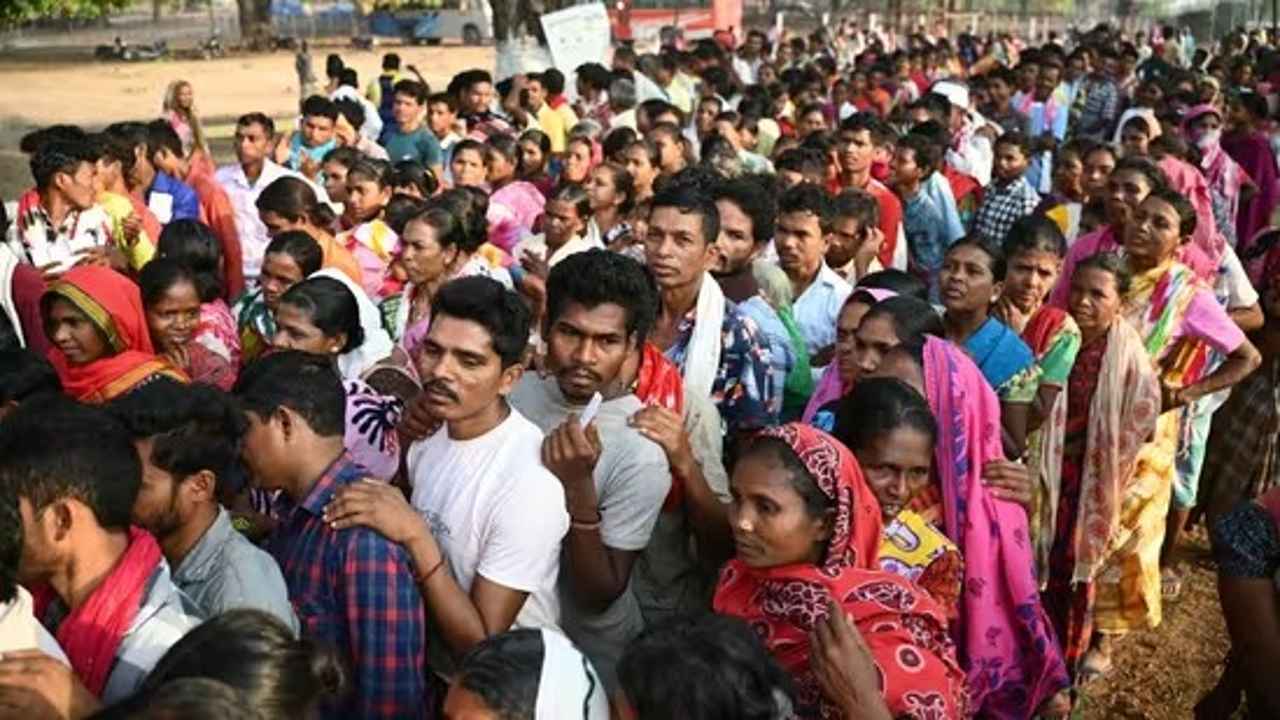
In the second phase of Lok Sabha elections 2024, over 50% of voters were registered in 13 states and the UTs till 3 p.m. 65% of voters participated in the first round of the Lok Sabha elections.
The 18th Lok Sabha elections are currently in their second phase, with voting for 88 seats taking place across 13 states and union territories. There are more than 1,200 people running for office, four of them are from outside Manipur.
Union minister Rajeev Chandrasekhar, BJP members Tejasvi Surya, Hema Malini, and Arun Govil, Rahul Gandhi and Congress leader Shashi Tharoor, DK Suresh, the brother of Karnataka Deputy Chief Minister DK Shivakumar, and former chief minister HD Kumaraswamy are among the notable contenders for the second phase.
In 2019, the NDA had won 56 of the 89 seats and the UPA 24. Six of these seats have been redrawn as part of the delimitation exercise.
The first phase of the seven stages of the elections took place on Friday, including 102 seats spread across 21 states and Union territories. Voter turnout was about 65.5% in the first phase, according to the reports.
In biggest festival of democracy, people from all walks of sector took part in it. A video went viral where former India captain and current Indian team head coach Rahul Dravid and former India player and head coach Anil Kumble were seen standing in line to cast their vote.
Meanwhile, voting started at 7 a.m. and will end at 6 p.m. The Election Commission has extended voting hours for those who are in line by an hour. According to Election Commission figures, the first two hours saw a 9.3% voter turnout throughout the 88 constituencies. By 9 am, Kerala had recorded 8.52%, Karnataka 9.21%, and Madhya Pradesh 13.82%.
In this phase, there were about 15.88 crore eligible voters, comprising 5.929 third-gender electors, 8.08 crore males, and 7.8 crore women. 3.28 crore young voters, aged 20 to 29, are among them; 34.8 lakh of them are first-time voters.
2024 Lok Sabha Elections
Lok Sabha elections 2024: 102-year-old man walks to polling booth to cast his vote in Jammu
The lowest voter turnout so far was noted in Ramgarh at 1.53%.
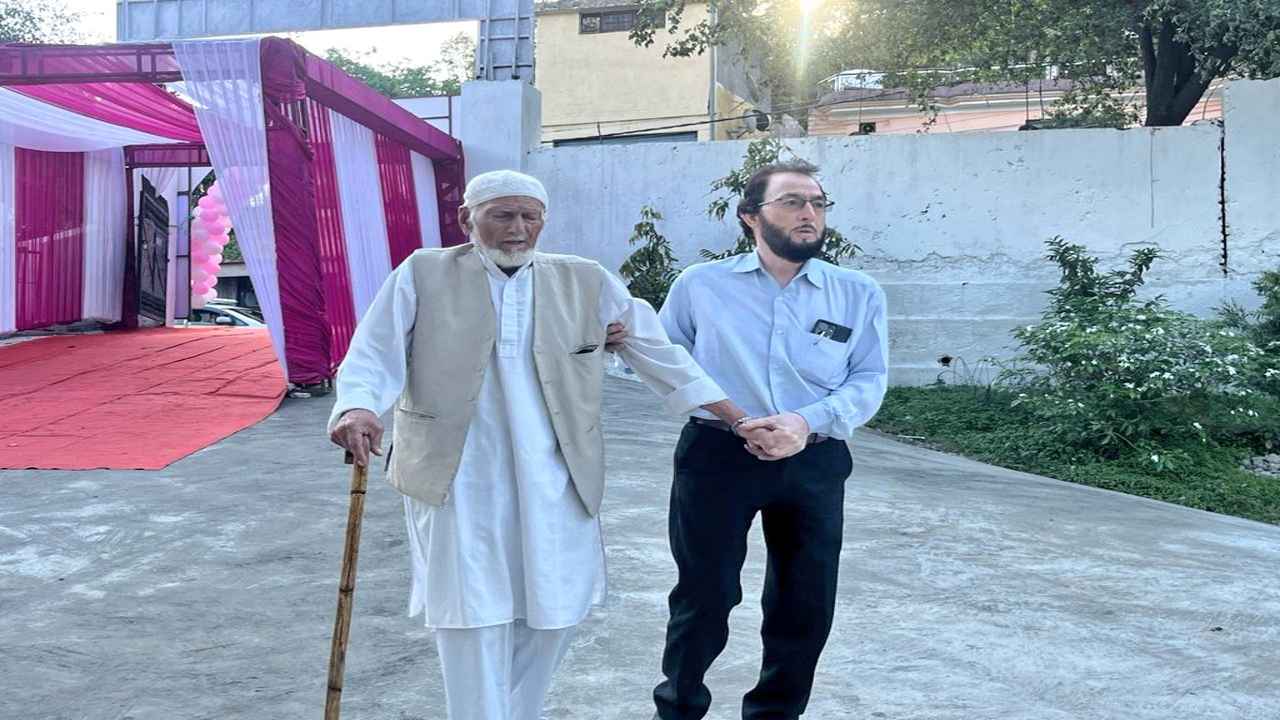
A 102-year-old man showed up at a Jammu polling place to cast his vote in the second phase of the Lok Sabha elections on Friday. Haji Karam Din arrived at the Reasi district polling place in the Jammu constituency with a walking stick in hand and a family member who assisted him with the pre-voting process.
Haji Karam Din, who is 102-year-old, showed his inked finger and posed for pictures outside the polling booth after casting his vote. He said voting at this polling place at this age makes him very happy. He has always cast his vote. Even at the age of 102, this experience is still ongoing, he said.
Reasi district is a part of the Jammu parliamentary constituency, and 22 candidates are up for vote with around 17.81 lakh eligible voters.
BJP’s sitting member Jugal Kishore Sharma is aiming for a third term in office following wins in the elections of 2014 and 2019. Former minister and Congress candidate Raman Bhalla is his main opponent.
Voting in the Jammu-Reasi Lok Sabha constituency began with eager voters showing up at the polling places. Some of them were wearing traditional Dogra attire.
In 2,416 polling places around the constituency, voting got underway at 7 a.m., and 10.39% of the total votes were cast by 9 a.m. In the 2019 Lok Sabha elections, Jammu recorded a 74% voter turnout.
Following the repeal of Article 370 and the division of the former state into two Union Territories five years ago, this is Jammu’s first significant election.
The Akhnoor segment received the highest percentage of votes, 14.24%, followed by Reasi (14.13%), Gulabgarh (13.53%), Shri Mata Vaishnodevi (12.71%), Marh (12.31%), Samba (8.56%), R S Pura Jammu South (8.17%), and Suchetgarh (5.67%), according to the officials. Ramgarh recorded the lowest voter participation of 1.53% so far.
Low attendance was observed in the border areas of the districts of Jammu and Samba till nine in the morning, according to poll data.
The officials said that big lines of voters were observed at several polling places throughout Jammu city. Voters were observed heading towards polling places early in the morning.
India News
Salman Khan house firing case: NIA interrogates arrested shooters Sagar Pal, Vicky Gupta for three hours
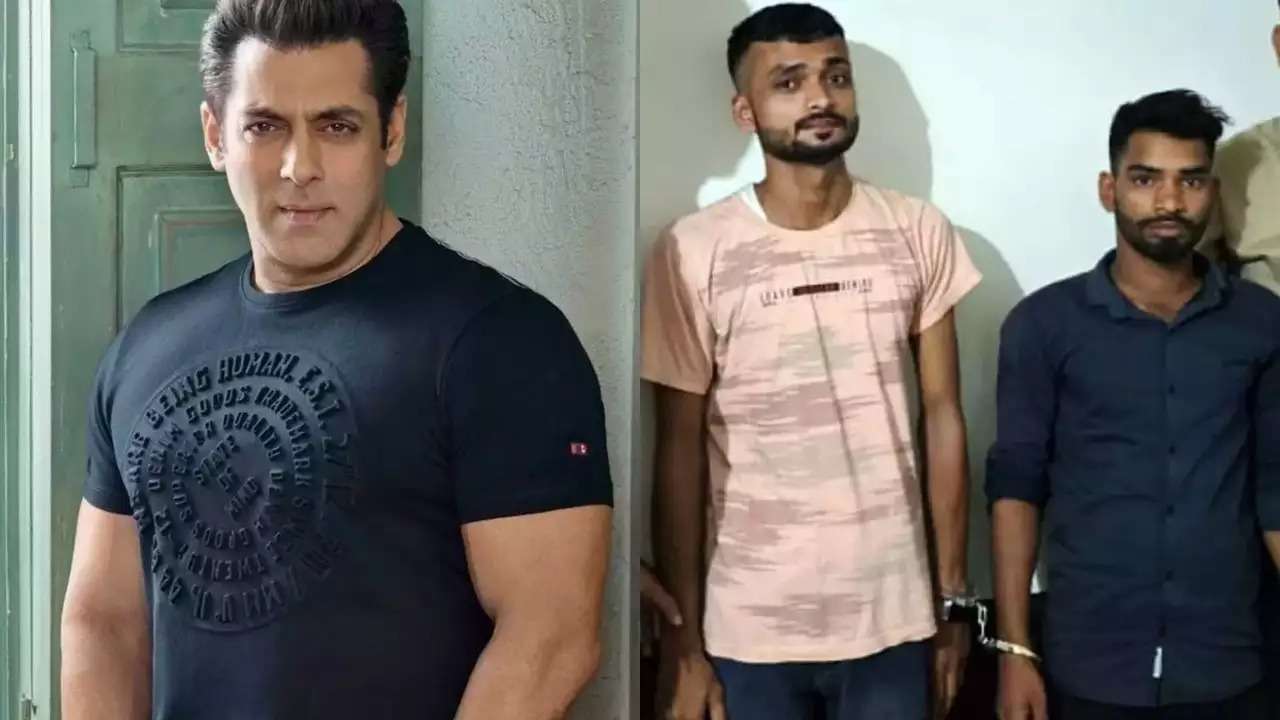
The investigation into the shocking firing incident that took place outside Salman Khan’s house on April 14 keeps bringing new updates with every passing day. In this case, Sagar Pal and Vicky Gupta, the two suspected shooters, have already been taken into custody.
The two shooters have reportedly been questioned by the National Investigation Agency (NIA), according to a new development. Every day that goes by, more information is revealed about the inquiry into the shocking firing incident that happened outside Salman Khan’s house on April 14. Sagar Pal and Vicky Gupta, the two accused shooters, are being held in custody after their first arrests.
It was recently discovered that the two shooters were questioned by the National Investigation Agency (NIA).
NIA has reportedly begun questioning Sagar Pal and Vicky Gupta, who were detained a few days ago for firing openly outside Salman Khan’s Galaxy Apartments in Mumbai, according to a recent update posted on their X (Twitter) account. NIA has interrogated shooters Vicky Gupta and Sagar Pal, arrested in the firing case, the tweet said.
According to the reports, two Punjabi residents were taken into custody by the Mumbai Crime Branch yesterday on suspicion of being involved in the recent shooting incident outside the house of Bollywood actor Salman Khan.
The two men, Sonu Subhash Chander and Anuj Thapan, provided guns to Sagar Pal and Vicky Gupta, the shooters, according to information released by the Mumbai Crime Branch. It was also reported that they had communication with the Bishnoi gang. For those who don’t know, hours after the incident, Anmol Bishnoi, the brother of gangster Lawrence Bishnoi, allegedly took credit for the firing in a Facebook post.
The shooters’ custody has been extended by Mumbai’s Esplanade Court until April 29.
Meanwhile, on the workfront Salman Khan was last seen in Tiger 3 alongside Katrina Kaif.
-
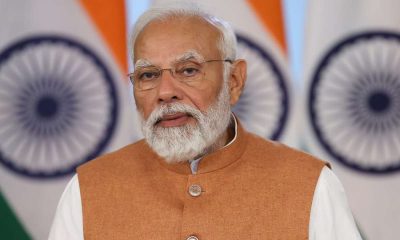
 2024 Lok Sabha Elections10 hours ago
2024 Lok Sabha Elections10 hours agoPM Modi calls for high voter turnout in second phase of Lok Sabha elections 2024, says your vote is your voice
-
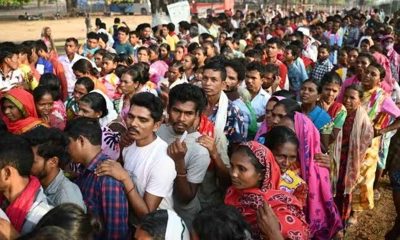
 2024 Lok Sabha Elections5 hours ago
2024 Lok Sabha Elections5 hours agoLok Sabha election 2024: Nearly 50% voter turnout recorded in second phase till 3 pm
-
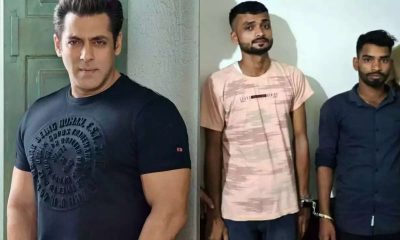
 India News9 hours ago
India News9 hours agoSalman Khan house firing case: NIA interrogates arrested shooters Sagar Pal, Vicky Gupta for three hours
-
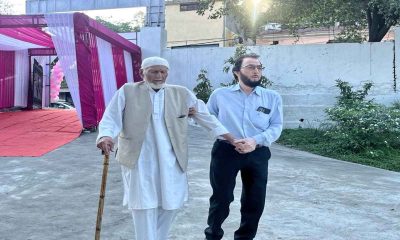
 2024 Lok Sabha Elections8 hours ago
2024 Lok Sabha Elections8 hours agoLok Sabha elections 2024: 102-year-old man walks to polling booth to cast his vote in Jammu
-
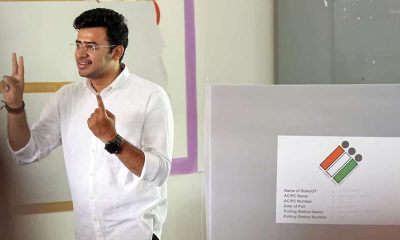
 2024 Lok Sabha Elections3 hours ago
2024 Lok Sabha Elections3 hours agoElection Commission books BJP MP Tejasvi Surya for seeking votes in the name of religion

